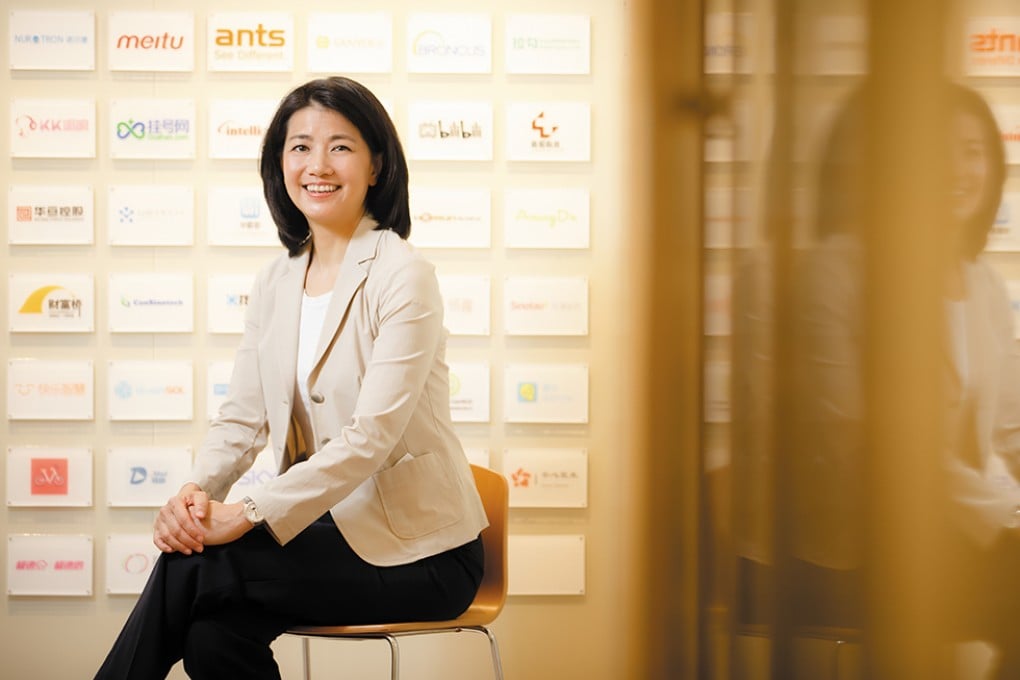A Wealth of Opportunity
When it comes to new technology like artificial intelligence (AI) and biotech, China is overflowing with opportunities for entrepreneurs and innovators who are willing to take risks and persevere, says Nisa LEUNG, Managing Partner at venture capitalist firm Qiming Venture Partners.

[Sponsored Article]
“China and the US are equally matched in terms of their achievements in tech. But China is much better at the kind of data collection that’s needed for AI, so China is developing much faster than the US in that area,” Leung says.
Biotech is another fast-growing sector in China. While the US has more innovations and innovators in biotech, China is catching up fast. According to Leung, around a quarter of biotech scientists in the US come from China, and many are hoping to return to China to work.
This phenomenon is also apparent in ‘Big Pharma’ which, according to Leung, typically takes a three-pronged approach to business, treating the US, Europe and China as different markets. In China, Big Pharma companies are usually based in Beijing and Shanghai. Since the financial crisis, the National Institutes of Health (NIH) in the US has reduced the funding available to Big Pharma. In contrast, China is increasing its grants. This, along with new regulations, has resulted in thousands of scientists returning to China to start their own companies.
“We believe innovation in China will continue to thrive, and innovative companies will continue to export their products and services,” Leung says. To date, Qiming Venture Partners has invested in 320 companies in China, many of which have grown into industry leaders.
Innovation is gaining pace in Hong Kong
Hong Kong has benefitted from being part of the Greater Bay Area (GBA), and Leung says that innovation in Hong Kong has gained pace over the last few years.
There are many reasons for Hong Kong’s increased focus on innovation. Mainly, entrepreneurs have noticed the opportunities offered by the GBA, and in mainland China in general, and this has attracted them to Hong Kong.
To foster growth in innovation in Hong Kong, and to increase opportunities for entrepreneurs in the sector, a comprehensive set of STEM initiatives has been rolled out. These initiatives involve prestigious institutions such as Stanford University, overseas professors who specialize in STEM, and investment companies such as Qiming.
Leung believes that the Hong Kong government is working hard to stimulate innovation. But she says there are not enough professionals or students in Hong Kong to populate the startup sector. This lack of available talent is proving a huge obstacle for entrepreneurship and innovation, Leung notes.
Parents do not think highly of startups, she adds. “We are also hoping to change the mindset of parents, who see joining startups in a negative light. That perception is now beginning to change,” says Leung.
Although Hong Kong is small, it has a lot to offer, Leung says. For instance, its international mindset and capable managerial talents are prized by entrepreneurs. After the Hong Kong government’s InnoHK initiative pumped around HK$10 billion into the sector, many professors have partnered with top researchers to start R&D centres. Through these R&D centres, Hong Kong will acquire the knowledge to turn technological discoveries into commercial products.
“When a company grows in Hong Kong, it can expand into the GBA,” Leung says, noting that with the exception of Shenzhen, and some companies in Guangzhou, there are not enough professional managers in China. This is another way that the global mindset and professional management skills of Hongkongers can take advantage of the opportunities provided by the GBA, she says.
Hong Kong may be small, but it is well positioned to excel in many fields. Healthcare, diagnostics, DNA sequencing, and medical devices, are just a few areas that Leung mentions. She also believes that Hong Kong is doing well in AI and robotics. “These areas will continue to thrive,” she says.
What it takes
Hong Kong startups and entrepreneurs rarely think beyond Hong Kong, Leung says. “That’s the biggest issue, and we continuously challenge them to consider the GBA, China, and the world,” she says. “It’s not enough to be competitive within China or the GBA. You need to be competitive globally. This is a very important mindset to develop.”
Travel helps to cultivate an international perspective, and experiencing new environments can inspire creation and innovation. Perseverance and a willingness to take risks are other important traits.
“Perseverance is important. That’s because 95 per cent of business models, budgets and business plans change. You have to persevere, because you have to find ways to make it happen, even if the product is not exactly the right fit,” she says.
Leung, who is also a member of the HKUST Business School Advisory Council, stresses that the education sector will play a big role in producing a new era of entrepreneurs and innovators. Institutions and colleges should reach out to industry with a view to mentorship and collaborating on product creation. “I would love to see more professors starting companies, too,” she says.
When it comes to STEM graduates, it’s a case of the more the better, Leung says. “It would be great to see more STEM majors. I think HKUST has done a phenomenal job in running STEM programs, and that has been reflected in how well it has performed in the rankings,” she concludes.
“The global mindset and professional management skills of Hongkongers can take advantage of the opportunities provided by the GBA.“
Nisa Leung, Managing Partner, Qiming Venture Partners

About Qiming Venture Partners
• Founded in 2006 as a leading China venture capital firm
• Invested in 320 fast-growing and innovative companies across China
• Seven USD funds and 5 RMB funds with US$4 billion assets under management